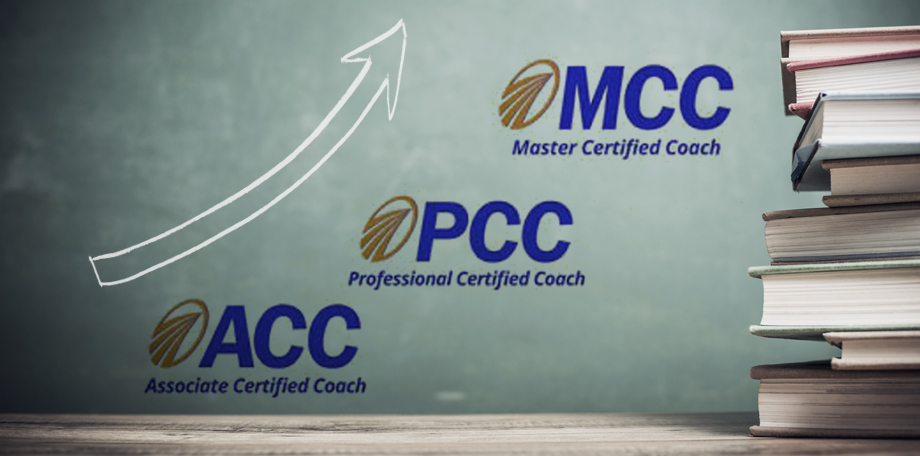During some point in your career, there may be an opportunity to consider hiring an executive coach. Whether you seek one out on your own, or your company recommends partnering with a coach, you likely have questions about the process. Here are seven questions and answers to help you navigate executive coaching.

-
What is Executive Coaching?
An executive coach is someone who specializes in developing an executive to optimize your leadership performance and more effectively manage increased overwhelm and stress.
There are many different levels of coaching:
- The most basic type of coaching is when you need help overcoming a gap in your performance. This type of coaching is for people who are challenged with something that can either be apparent or it could be a blind spot that you may not be able to recognize. Either you or your boss assesses that your behavior impedes your performance or the performance of others and it should be addressed.
- The next level of coaching is when you are promoted to management level. Here, you move from being an individual contributor to needing to understand the dynamics of developing others. In this stage, you experience a mind shift of letting go of control, trusting other people instead of being the hero, setting expectations, providing good feedback, and developing others.
- Another level of coaching has to do with scale. When you go from managing five people to 100, or from 500 to 5,000, you must learn different ways to manage your time and lead your people.
- Finally, executive coaching can range from trusted advisor to nuanced refinement for C-suite executives. Executives are already exceptional performers, but a coach will help you hone in on specific areas to optimize performance and unveil blind spots, bringing you data and feedback others may fear to offer.

-
Who should hire an Executive Coach?
Anyone who wants to continually and constantly improve at any level should hire an executive coach. And if you are ambitious, it is never too early to start.
I once had a 24-year-old client, we’ll call him Ryan, who sought out executive coaching and paid for it out of his own pocket. He wanted to focus on developing himself professionally, while reaching his goal of becoming a Chief Technology Officer. In order to pay for the coaching, he didn’t date, he didn’t go out to eat, he didn’t do anything frivolous, and instead decided to spend that money on coaching. From the very beginning, I coached him to think, respond and perform at a higher level than his current position. Ryan learned to ask better questions while increasingly becoming more self-aware. His EQ and his situational leadership grew exponentially. Just five years later, he became the youngest CTO in the financial trading industry, right before his thirtieth birthday. He was an incredibly talented young man but the coaching helped him learn to think, communicate and process like a CTO very early on in his career. He was acquiring skills people don’t typically achieve until much later in life. Because of his age, Ryan is somewhat an exception to the rule, as I typically work with people with high potential in mid-level management all the way up to C-suite executives.
Who hires an executive coach has definitely changed in recent history. According to a survey by the Harvard Business Review, ten years ago, most companies engaged a coach to help fix toxic behavior at the top. Today, most coaching is about developing the capabilities of high-potential performers.
The survey reports the top three reasons coaches are engaged are:
- Develop high potential or facilitate transition: 48%
- Act as a sounding board: 26%
- Address derailing behavior: 12%
Today’s coaches have a broader mission and executive coaching is used as a business tool along all parts of the organization.
-
What can you achieve with Executive Coaching?
There are no limits to how you can improve by working with an executive coach, but the key areas of focus are typically:
- Driving results. Through coaching, you will learn how your thoughts affect your moods, how those moods affect your behaviors and how those behaviors ultimately help drive your results, both professionally and personally.
- Creating followership. You may already be driving results, but if you push people too hard, those results will eventually decline, and you’ll lose team members. Coaching helps you become a great leader because you learn how to inspire respect, admiration and hard work from those who work for you.
- Effectively managing down, managing across and managing up. These are all different skill sets that need to be learned.
- Situational leadership. This is learning how to address whatever scenarios that happen to come up during the day with the right leadership style for the person or situation at hand. You must be able to adapt to lead from different styles, and coaching can help you achieve this.
- Mental fitness. When you are mentally fit, you are not reactive or triggered. You know how to manage stress and overwhelm effectively, you are resilient in whatever conversation/crisis you are facing, and you are able to have poise under pressure. When you are mentally fit, you bring the full capacity of your brain to every situation.
- Targeted performance area. Executive coaching can help you manage a particular area that you’ve recognized you need to work on such as anger management, building trust, etc.
- Doing the right thing. This is about being an ethical leader, making the right decisions, and putting the organization first, your team next and yourself last.

-
What is the typical Executive Coaching process?
The typical executive coaching engagement is six months, though it can extend longer and even last for years. This longer time frame allows for learning to happen at the very beginning of the process and allows for the practiced application of change throughout. You’ll need time for the changes to become integrated.
During the first month, the executive coach’s goal is to deeply understand you, your environment, your personal and professional history, your underlying operating system and your core drivers. This time is about capturing targeted data, building trust and intimacy between the coach and client.
From the very beginning of the executive coaching engagement, there should be metrics that serve to evaluate your progress and provide measurable outcomes. At JMA, this starts with one-on-one 360° stakeholder interviews (via phone interview or in-person meeting) for as few as 8 to as many as 20 to capture qualitative and quantitative performance feedback.
In this analysis, the executive coach asks in-depth questions about how you are being perceived in a multitude of leadership capabilities. The coach hears from those who work with you day in and day out which allows them to build a hypothesis and identify opportunities for growth and development. You also undergo a self- analysis of those same areas which can help to identify your blind spots. For instance, you might consider yourself a good listener, but your colleagues don’t feel the same way. They may see your cell phone use gets in the way of your listening skills.
All JMA executive coaching clients also attend our leadership development workshops. The immersive Accountability Mirror™ and MindMastery™ workshop programs dig below the surface to help you identify the ways you might be standing in your own way and train you to change those nonproductive patterns. Many clients tell us they were surprised to learn their mindset and the language they use profoundly impacts their day-to-day performance, energy and outcomes. Our workshops provide the tools you need, including access to our proprietary MindMastery™ app, to achieve and sustain measurable change.
It is after the initial deep analysis and assessment provided by key stakeholders that the coach and client co-create the targeted areas of focus. JMA coaches employ weekly one-on-one coaching, coupled with a variety of techniques and strategies to achieve the desired change in a measurable way and promote leadership, perceptual and behavioral change.
Throughout the process, the coach should debrief and share the findings with you. These debriefs are designed to transfer knowledge, build a foundation for personal and professional development, and provide context and shared language for use in both future coaching sessions and effective leadership communication.
At the end of the agreement, the coach will go back and do a post-interview 360 with those same individuals interviewed at the beginning of the engagement. This ultimately allows the coach to compare pre- and post-coaching performance, which measures change perceived by key stakeholders. It is a way to measure the impact and ROI of the coaching engagement for the client and the organization.
Keep in mind that the whole point of executive coaching is development, growth and transformation in one or more key areas of performance: communication, listening, situational leadership, driving results, executive presence, and creating followership.
-
What is the ROI of Executive Coaching?
A frequently cited survey by PriceWaterhouseCoopers and the Association Resource Centre found that the mean ROI of coaching was seven times the initial investment. That’s because the effects of executive coaching are far reaching. The International Coaching Federation (ICF) reports that “leaders who participated in coaching saw 50 to 70 percent increased in work performance, time management and team effectiveness.” And the benefits multiply. With strong leadership teams, companies increase their capacity to scale. They benefit from higher productivity, engagement and retention rates, which all profoundly contribute to bottom-line results.
It’s important to note that while many of the benefits of executive coaching are intangible, they are not immeasurable. Those 360-degree assessments mentioned above allow JMA coaches to measure 32 leadership competencies, ranging from decisiveness to delegation, active listening to effective feedback.
Related: Measuring the ROI of Executive Coaching

-
What should you look for in an Executive Coach and how do you know if you’re getting a good one?
Much like there are different levels of coaches in sports (from Little League to the pros), there are also different levels of executive coaches. One coach may be comfortable working with a Director but not a Fortune 100 C-level executive. Some only work at the manager or mid-level, while others are strictly upper level. As you move up the org chart, the level of complexity increases and so should your coach’s skills.
There’s a common fallacy that a coach must work in the same industry as the executives in order to coach in that industry. A lot of coaches are ex-retired employees that make a declaration that they are now a “coach,” but that’s not really coaching.
It is essential for an executive coach to have corporate experience, to have led people and teams, but you don’t have to have been a CEO in order to coach one. For example, Phil Jackson never played the game of basketball as well as Michael Jordan, but he was definitely a better coach than Jordan. A coach brings different skillsets, psychology, human behavior, neuroscience, coaching skills and aspects of somatics and sociology to the table.
Here’s important information that a large percentage of coaches don’t want you to know:
Coaching is an unregulated industry, which means anyone can call themselves a coach. While nothing speaks louder than a proven track record—including testimonials from satisfied current and past clients—there are some criteria that every coach should meet.
Look for a coach with professional credentials and qualifications, which indicate their level of training and professional development.
The ICF credentials are:
- ACC: Associate Certified Coach, 100+ hours of paid coaching experience
- PCC: Professional Certified Coach, 500+ hours of paid coaching experience
- MCC: Master Certified Coach, 2,500+ hours of paid coaching experience
These designations appear after a coach’s name. Next, look at leadership experience and business acumen. Extensive corporate and entrepreneurial experience are crucial skills that allow a coach to understand not only your personal but your business challenges as well. Good coaches help deliver measurable bottom line results.
-
Where can you find an Executive Coach?
Word of mouth referrals from other executives can be a great source, as can an extensive Google search online. Once you find a coach you are interested in, check out their certification level on the International Coaching Federation directory. As you vet the coaches you are interested in, the most important thing to do is prepare some questions and spend some time with the coach to evaluate chemistry fit and competence. If you would like to hear success stories from some of JMA’s clients, watch our testimonial videos.
Ready to get started with your own Executive Coaching engagement? Contact us.
